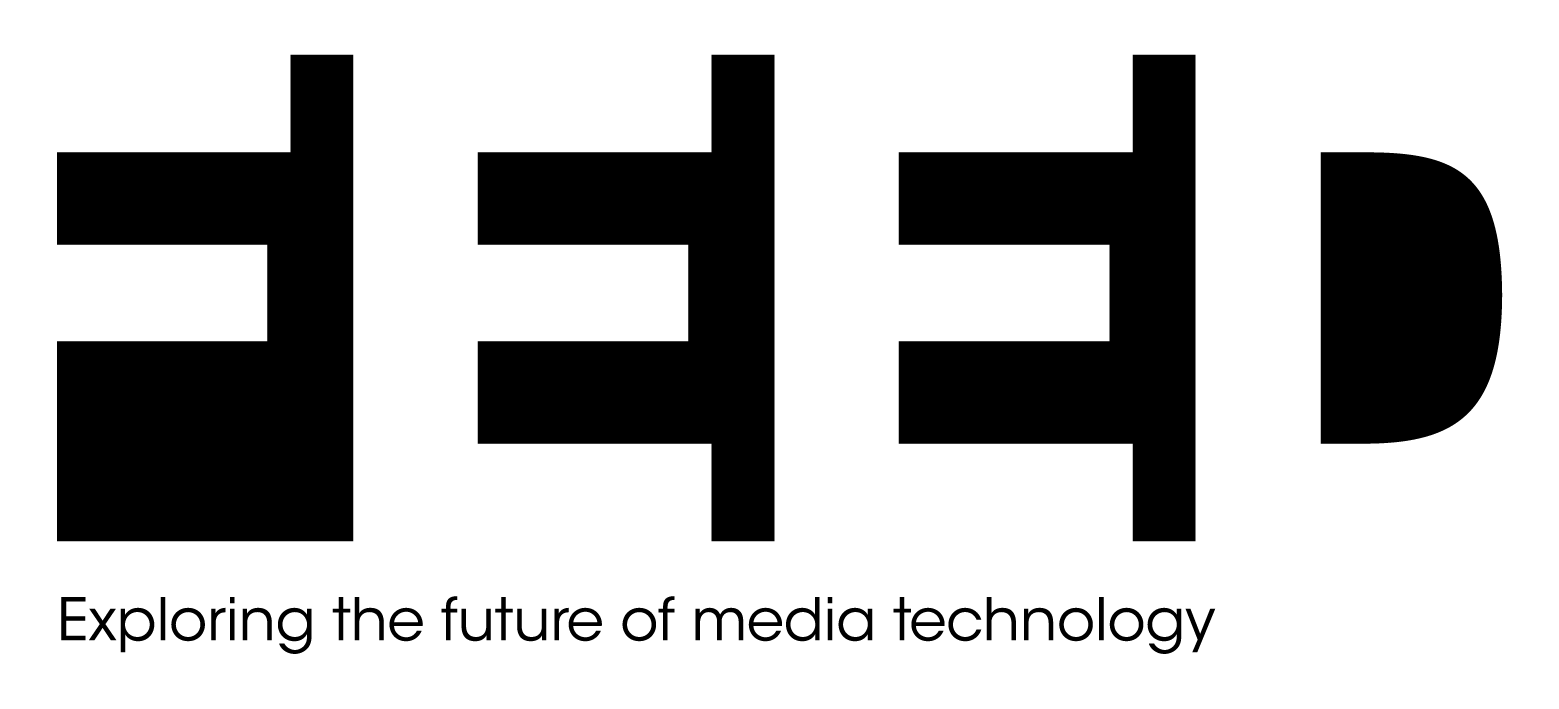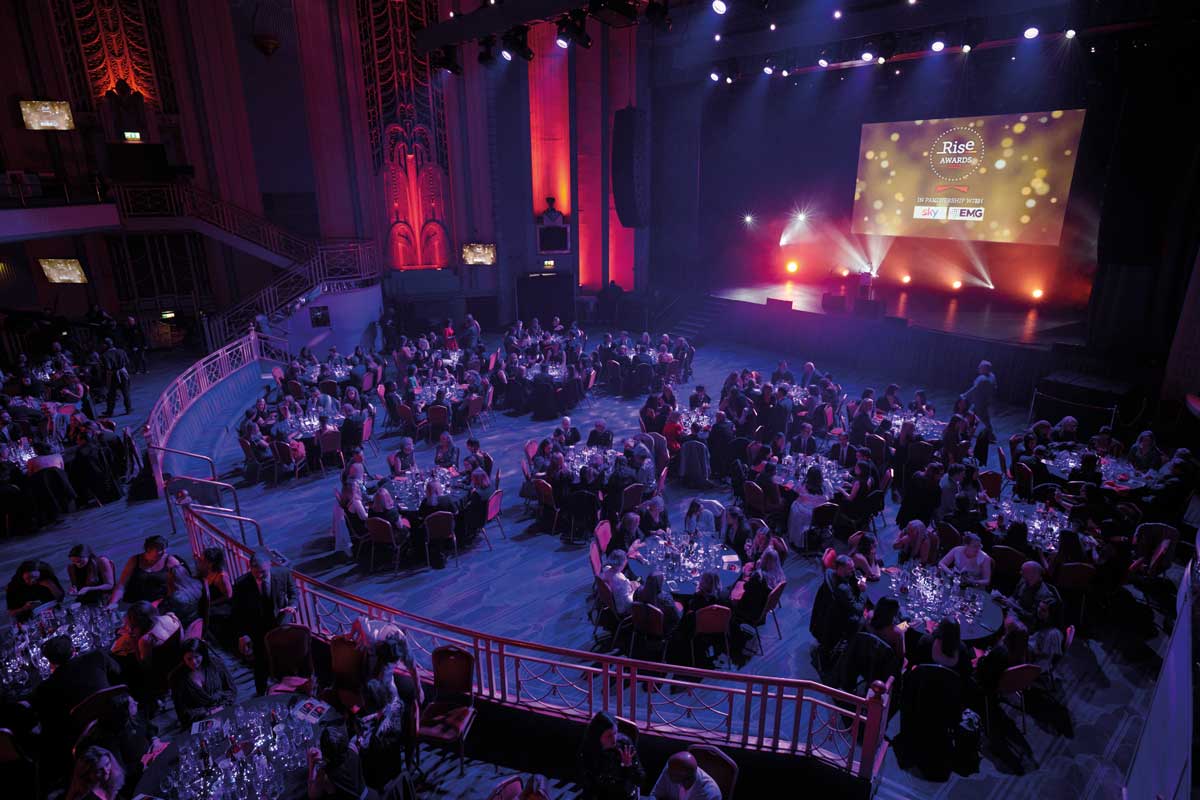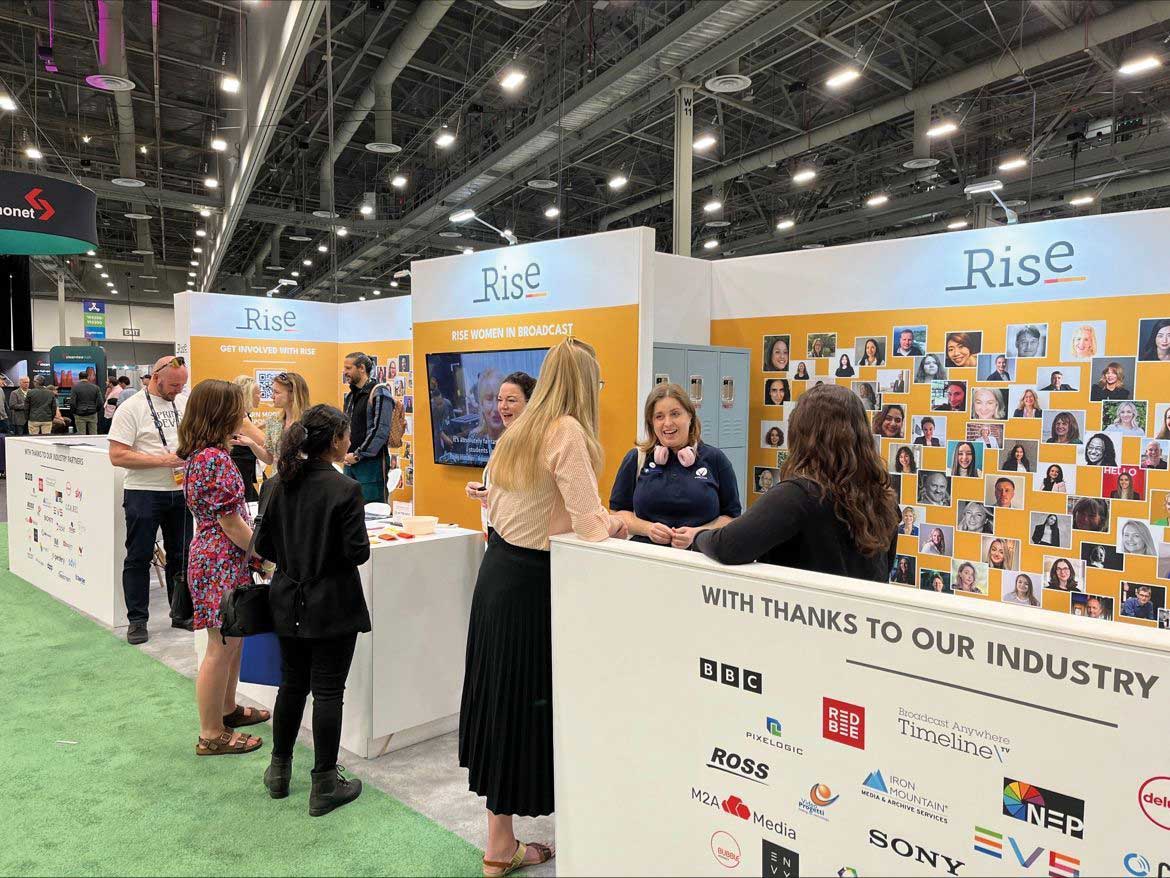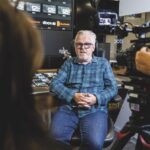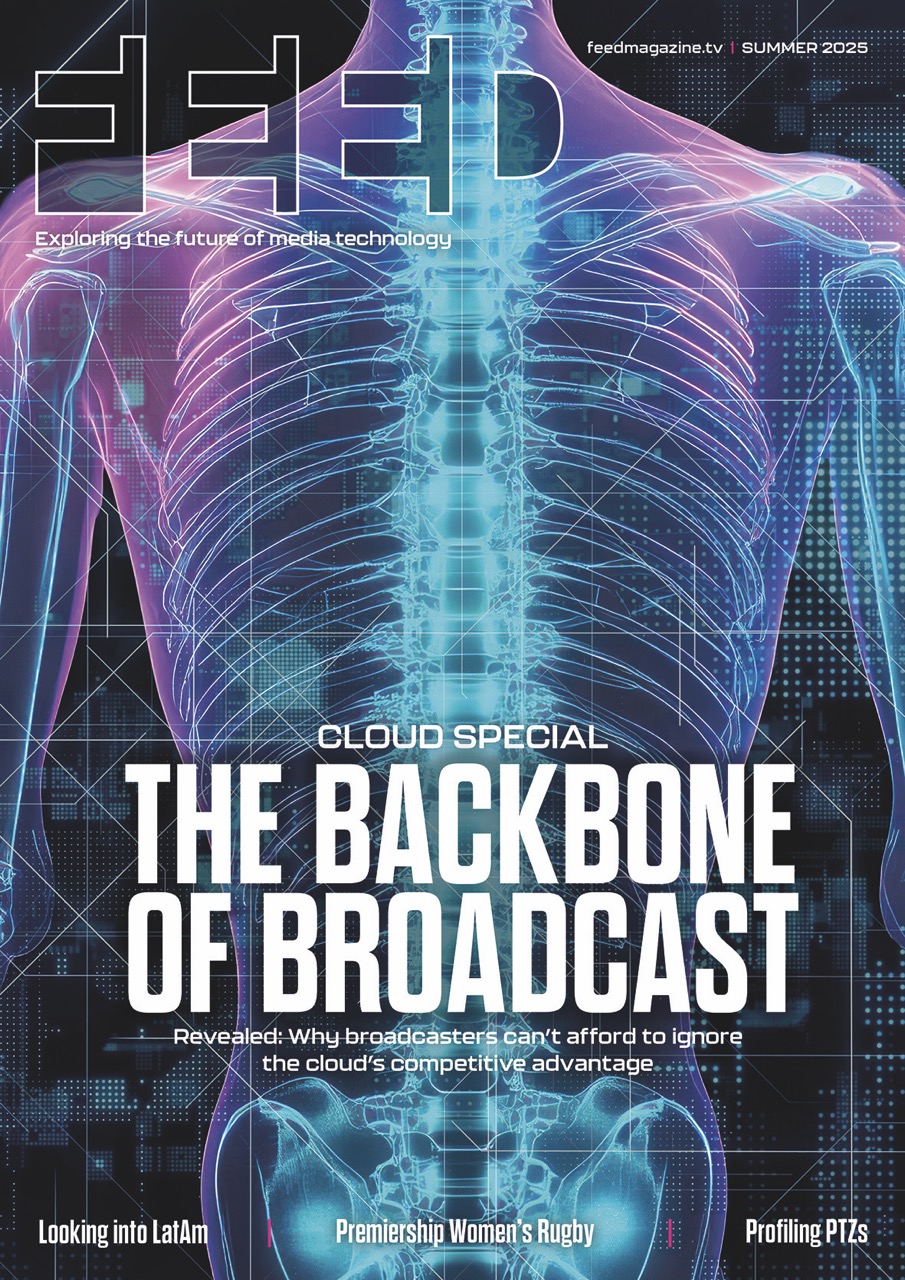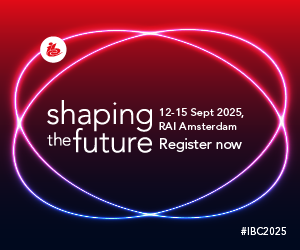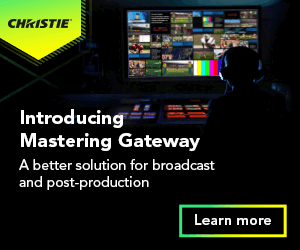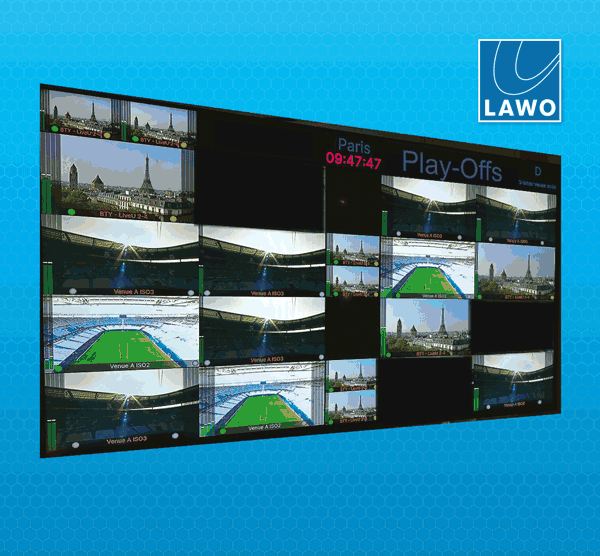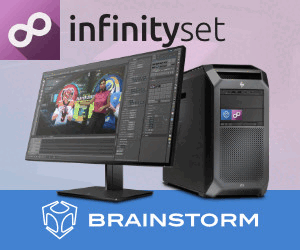Genius Interview: Sadie Groom

Posted on Dec 27, 2024 by FEED Staff
In 2017, CEO of Bubble Agency Sadie Groom decided that she’d had enough of the male-only panels at trade shows, the male-dominated C-suite in broadcast and a mutual lack of confidence among women in tech.
Taking matters into her own hands, she founded Rise – a global group offering mentoring, training and awards across all job roles, plus an academy for children and university students. She joins FEED to share all about her career, her own experiences of gender inequality, the launch of Rise and the critical progress that still desperately needs to be made.
FEED: What got you into the broadcast industry?
SADIE GROOM: Most people would be surprised to hear that my degree is in theology. So the route was either nun or teacher, and I didn’t want to do either. While I was at university, I was very lucky and got the opportunity to work at Vogue. First, I thought I wanted to go into journalism, then I realised that I actually wanted to go to the PR side.
I first worked for a technology PR agency that carried out PR for the printing industry – not exactly glamorous but it gave me a good start. After that, I went to work for Centaur publishing. At the time, they published Televisual magazine, which is when I first became really interested in this space. Then, I was approached to do a marketing role for another publisher who produced magazines in the media and broadcast sector. They also published for Avid, which eventually led to me becoming their European PR manager.
Afterwards, during some time of difficulty, I was made redundant. However, Avid promised me that they would grant their contract to whichever PR agency I joined. I interviewed at about four or five different agencies, the last one being the final straw. This was where I was interviewed by a man who still had his egg-and-bacon breakfast down his shirt – and also happened to be very condescending about my career and background, only giving me the time of day because he knew I had the Avid contract.
That’s when I said: ‘Right, I’m doing it myself’, which was when I launched Bubble Agency 25 years ago. I was 26 and had no clue what I was doing – it’s had massive ups and downs. I’ve done two recessions and had a child, yet we are still here!
A large part of my career has been focused on Bubble and Rise, but a big milestone for me has been securing non-executive director positions, of which I hold three. I’m on the board with the DPP but the other two are completely different sectors, which allows me to learn and meet different people.
Can you tell us the story of Rise?
It began with the fact that I always noticed I was being treated differently. I remember meeting a company at IBC, and they were pitching out their PR contract. There were three men; it was quite embarrassing because they’d lined us all up – and the guys went in first. Then, it was me and another woman, followed by a bunch of guys after that… and then the two women didn’t get it. It might have been for other reasons, but it did go to one of the male-led companies. It was around then that I started to notice differences. Then, working in marketing and PR, these are areas that are stereotypically a ‘female job’. Someone at IBC called me a ‘marketing girl’, and that tipped me over the edge. I thought, ‘I run a million-pound-a-year company, I’m not a ‘girl’’!
Another big realisation came when I had my son. My husband also works in the industry, and we’d go to shows together and people would ask, ‘who’s looking after your son?’ Not to mention that, when I was pregnant, people would close their contracts with me since they didn’t think I’d be fit for the job.
I returned from maternity leave and joined Women in Film and TV, which was great. But then I realised we had two meetings a year at NAB and IBC, which I thought was odd because there were many women that weren’t being catered for. So I said: ‘Can I do a Women in Film and TV Tech version?’ I originally called it FBI (Females in the Broadcast Industry), and it was after the initial few meetings at IBC that I started thinking we’d really got something.
I met a woman named Lesley Johnson, who works at BBC Studios. At the time, IBC ran an executive programme where participants would go in two days before – and she was the only woman among 90 attendees. We sat there and agreed that somebody had to do something about this. We decided FBI was great, but it was a bit too playful and not ready to launch in America – and that we needed to do this globally.
I knew I wanted it to be something more than just a group of women having a drink and a moan about men. After a few more events, a website and brand refresh to Rise, we launched the mentoring programme, which is now on its seventh cohort.
If you look at where Rise is today, we are set up in North America and New Zealand, with a European group chapter, an Indian chapter, one in the north of England and plans to launch soon in the south-west of England. This year, the mentoring programme involved 220 women across the world and is a highly sought-after course.
I always wanted to do something with the C-suite. The number of women on the C-level is at around 12% in our sector, so having a programme specifically for them was important to me. We launched in January, and it features an amazing group of women.
We’ve also launched Strive to Rise, which is for companies to get an accreditation for their gender diversity practices. There’s also the Rise Awards – now in its sixth year – which serves to celebrate the achievements of women across broadcast and media tech.
Additionally, there’s the recently launched Panel Plus initiative, which looks at going to event organisers and ensuring that there are no male-only panels. We’ve found that a big issue when getting women onto panels is a lack of confidence – to address this, we’ve partnered with Mark Harrison from the DPP. Another issue is that women are often brought in to moderate rather than participate on the panel itself.
Our Outside Broadcast Programme was another recent launch. Many women had enrolled in the mentoring course, but they struggled to attend sessions due to being out on trucks for work.
Finally, we are also doing a lot of work around menopause, running sessions which involve doctors and companies carrying out good practice with women dealing with menopause.
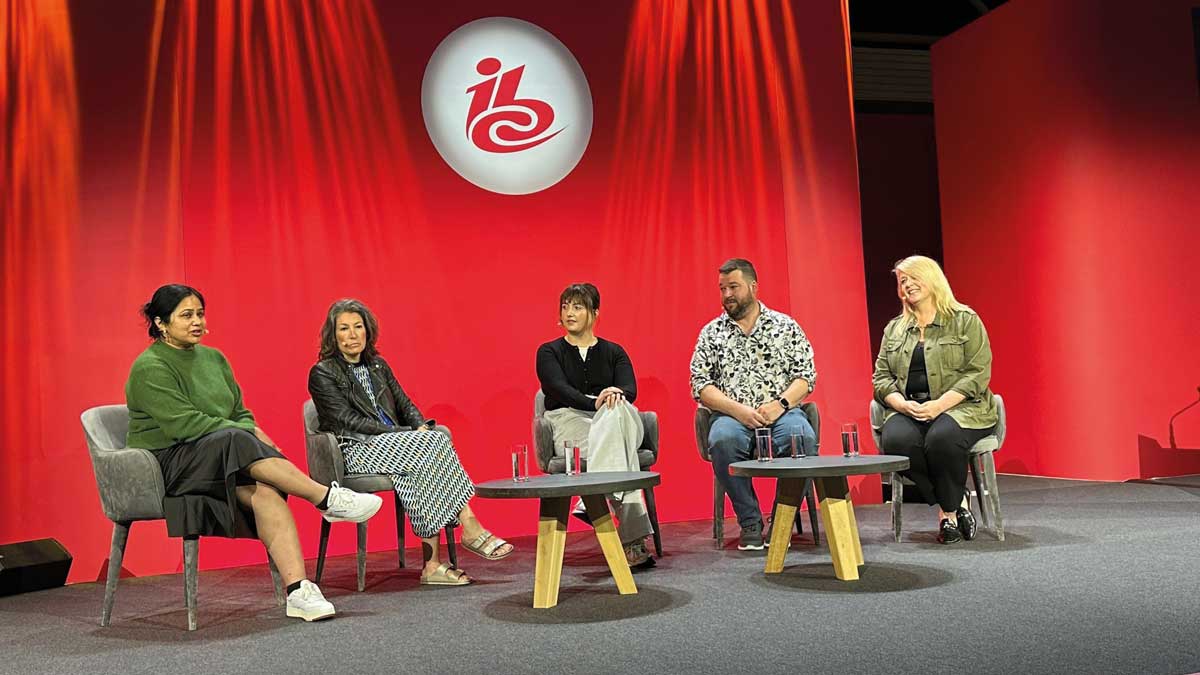
What are some of the biggest challenges faced by women in the media industry, and how can supporting initiatives like Rise help that?
I recently read a statistic that stunned me. This statistic revealed that 80% of people can’t name a female entrepreneur, which summarises the many challenges women face in business. I think one particularly big challenge is women being taken seriously in technical roles. One time at NAB, somebody walked up to our client’s stand with a question, to which the client replied: ‘I’ll go and get Nicola’, which they responded to with: ‘No, I want to speak to somebody technical’.
I really like the Geena Davis quote: ‘If you can see it, you can be it’. That’s why initiatives like Panel Plus are important, to help reflect the change in representation that is happening.
There are many big companies in our industry like Sky and BBC who must get it right and have HR departments to ensure that. But much of the broadcast technology sector is made up of small companies started by (typically) male engineers who have launched a product and therefore a business, but don’t have an HR department.
It’s a case of breaking out of that mould and supporting women who have different needs – helping them stay and rise up within a business.
I don’t want sponsorship money to just come from marketing so they can tick the Rise sponsorship box. I want the HR teams to be involved, or at least the CEO if there’s no HR, to ensure that real change is being implemented.
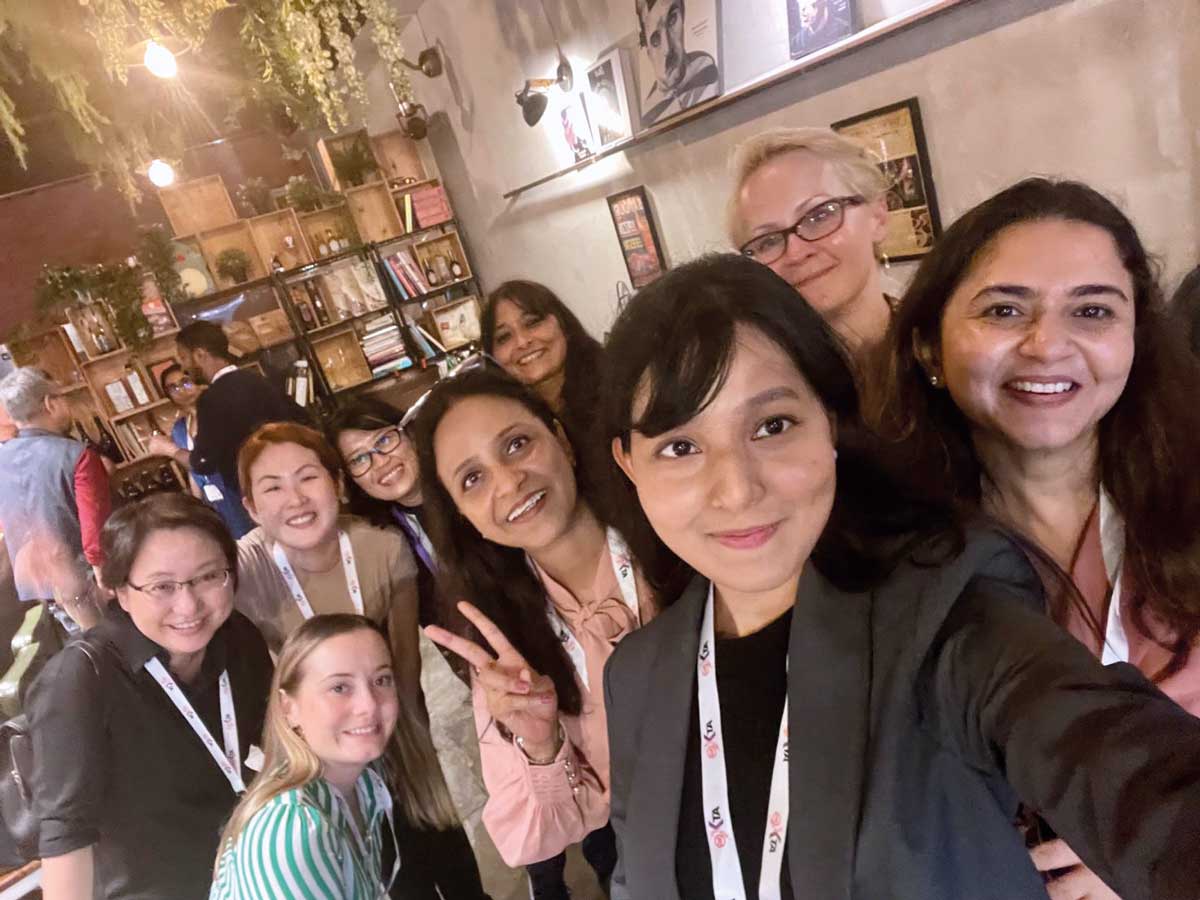
Bubble Agency is a major PR force in the media-tech space, launched and managed by you. What is the PR landscape looking like at this moment in time?
The landscape at the moment is very interesting. I love magazines and print, and now there are so many additional ways of communication. The way people consume information has also changed massively, and so the PR landscape has had to adapt to that. We’re now working with clients on podcasts and LinkedIn campaigns, for example. PR is constantly trying to cut through the noise, which can be difficult.
PR people are good at building relationships and, at Bubble, we go beyond simply connecting press and clients – we bring in industry people as well. Bringing people together is so important, since strong relationships ultimately lead to good stories.
You take a leading role for an array of organisations. Any advice for fellow leaders and managers out there?
One of my key goals is to find alternative ways of learning and share that knowledge with others. Serving on a university board, for example, allows me to connect with a diverse range of people. I always try to surround myself with people I can learn from because it’s so easy to develop tunnel vision in your business. That isn’t good for anyone because no business is perfect.
Another piece of advice is to always employ people smarter than you. There’s a fantastic book called Rocket Fuel, which requires you to do a test prior to reading to discover if you’re either a visionary or an integrator. I’m 98% visionary, but to make my visions real I need an integrator, who for me is Lou [Louise Wells, managing director at Bubble Agency].
Communicating regularly and asking for feedback are also highly important factors. I’ll write an email every Friday about what has been going on and what I’ve been up to.
We recently launched a new feedback approach at Bubble, where we always ask each other, ‘how did that go?’ ‘Did you enjoy it?’ ‘Did we get it right?’ I have also – for the past 15 years – worked with a coach or business advisor, which has been invaluable for me and my business.
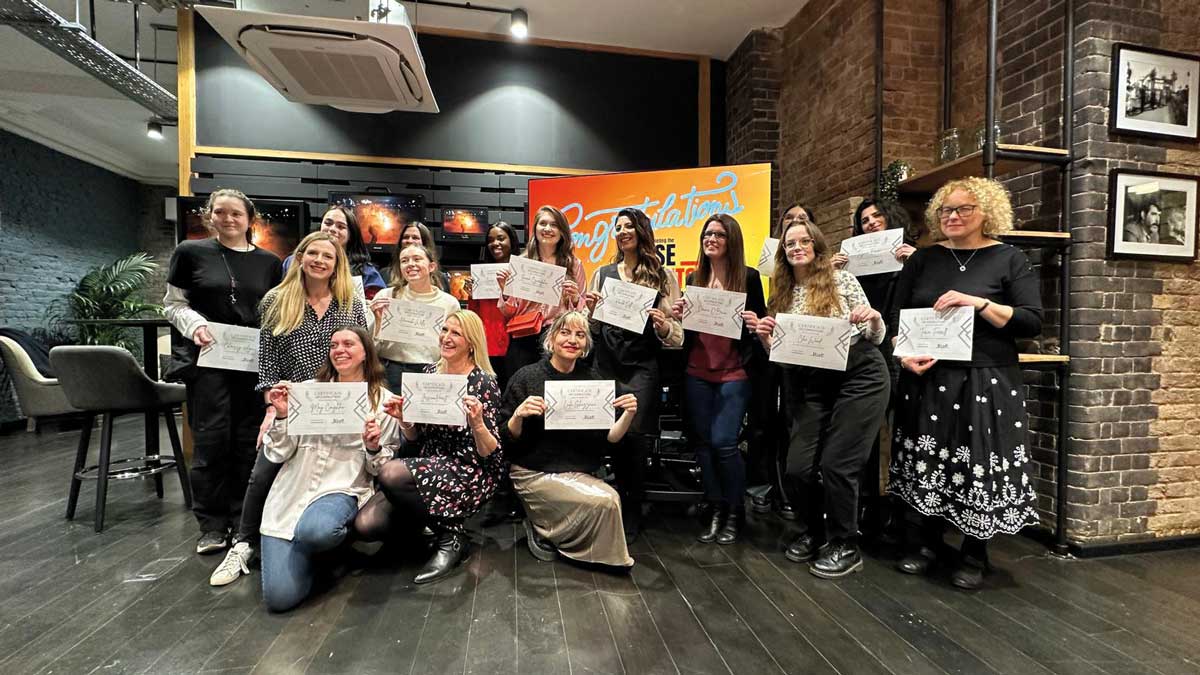
What are some of the biggest challenges faced by the industry right now, and do you have any tips for someone starting out?
The global advertising model has changed totally. We have some clients in ad tech, and this has been a huge challenge.
There’s also a shortage of jobs; I don’t like to say ‘skills shortage’. Plenty of skilled individuals are out there who might not fit the role perfectly at first, but are still being discounted because of that. People need to be more open in recruiting – especially for the older generations. I’ve got quite a few employees in their fifties, and it’s a hugely untapped market. These people all have a massive amount of experience yet are getting overlooked.
AI is definitely a challenge. It’s also a huge opportunity for creating business efficiencies. The challenge lies in knowing how to use it – what with there being so many tools available.
We also must make the industry more attractive to work in. Individuals with IT degrees, who could do well in this space, often opt for roles at companies like Google, drawn by perks like unlimited holidays.
A tip for people starting out is to get out there and join as many networks as possible. I love the Sheryl Sandberg book Lean In, but I like to jump. You’ve got to stand out from the crowd. You can do that by having a certain style of clothing or having opinions – or a tone of voice on LinkedIn.
Be interesting and be interested. Talk about stories from your childhood – people don’t always want to talk about work! They’re interested in what you do outside of work because that’s what makes you a more well-rounded human being.
And for women especially: stop saying sorry!
To learn more about Rise, head to risewib.com
This feature was first published in the Winter 2024 issue of FEED.
